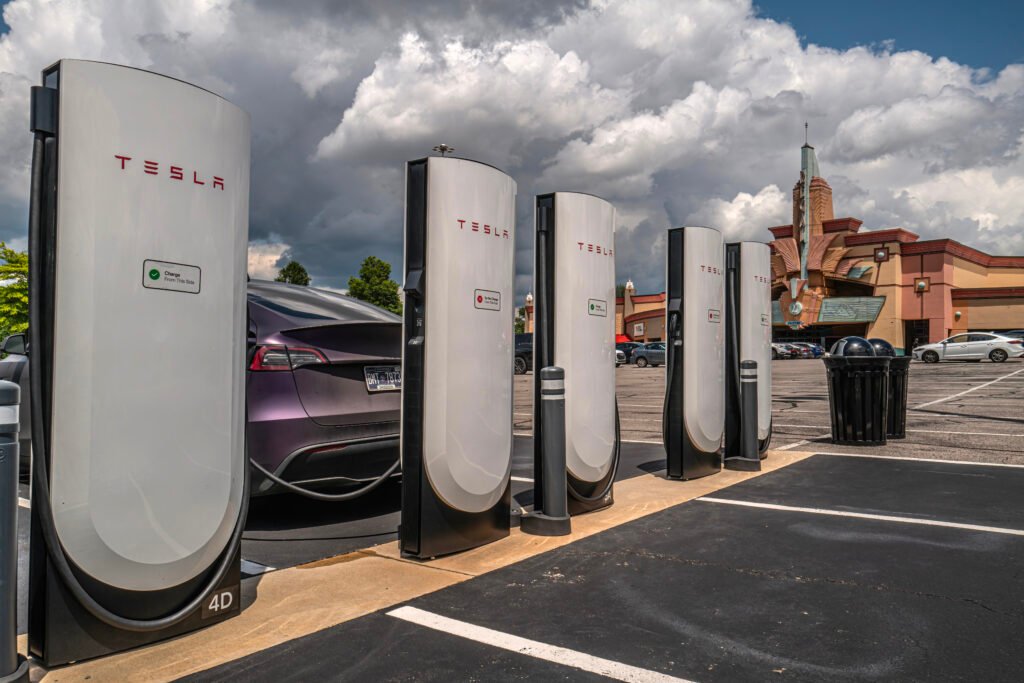Tennessee’s Electric Vehicle Charging Updates
Tennessee’s Department of Transportation is optimistic that fresh federal guidance on electric vehicle charging networks will help move forward a contract worth $21 million, which has been on hold since February.
The National Electric Vehicle Infrastructure Program (NEVI) has designated $88 million for Tennessee over five years, aimed at establishing significant interstate and EV charging stations along Highway 64, which runs from Memphis to Pelham. Earlier this year, the Tennessee Department of Transportation (TDOT) awarded this funding to ten applicants to set up 30 new charging locations.
These initiatives are part of Tennessee’s broader efforts to enhance EV infrastructure, encouraging adoption among users. The state’s EV manufacturing sector has seen growth recently, propelled by state incentives aimed at creating jobs in rural areas. However, Ford’s new facility in West Tennessee, intended for mass production of full-size electric trucks, has pushed its launch to 2028, focusing instead on smaller models in Kentucky.
The NEVI program, with an overall budget of $5 billion, had been stalled since February 2025 due to President Trump’s executive order freezing funds for electric vehicle and clean energy projects. While some states are legally contesting this freeze, Tennessee has not participated in these challenges.
Recently, U.S. Secretary of Transportation Sean P. Duffy announced interim guidance indicating that the program will simplify applications, enhance flexibility for states, and reduce bureaucratic hurdles. States can reapply for funds adhering to these new conditions within the next month.
Beth Emmons, head of the Tennessee Department of Transportation, mentioned that they are reviewing the updated guidelines and are eager to move forward with the program once the official requirements are established. However, progress has been slow, with the current 400 charging ports funded by NEVI not fully operational yet.
With $3.3 billion allocated to states from 2022 to 2025, 38 states have already announced funding based on prior plans, although they must be resubmitted. So far, 16 of these states have operational charging stations.
The revised guidance from the federal government also emphasizes servicing rural and underserved areas, while simplifying various regulatory requirements. Secretary Duffy remarked on the necessity for Congress to ensure federal support for the development of charging stations and minimize waste.
Reactions to the New Guidance
A coalition supporting national EV charging networks appreciated the recent guidance. They acknowledged that previous requirements had hampered deployment efforts significantly. The hope is that these changes will facilitate the establishment of charging stations, making it easier for local gas stations and retail chains to offer EV charging options.
However, some nonprofits, including the Sierra Club, argue that the new guidance could further prolong the rollout of EV charging infrastructure as states navigate the reapplication process. They criticized the situation, calling it ironic that this guidance, framed as a reduction of red tape, has instead caused delays of over six months.
Ongoing State Initiatives
Meanwhile, Tennessee is advancing its Fast Charging TN program independently, which aims to install EV chargers in a 400-mile loop connecting Nashville, Knoxville, Cookeville, and Chattanooga. This initiative is supported by funds from the Volkswagen Diesel Settlement Environmental Mitigation Trust, as well as revenue from the Tennessee Valley Authority (TVA) and contributions from grant recipients. Currently, there are 35 operational charging sites, and another 18 are in the works.
The Tennessee Department of Environmental Protection announced it would extend the funding period for the next round, prioritizing areas where the NEVI program may not provide coverage.







